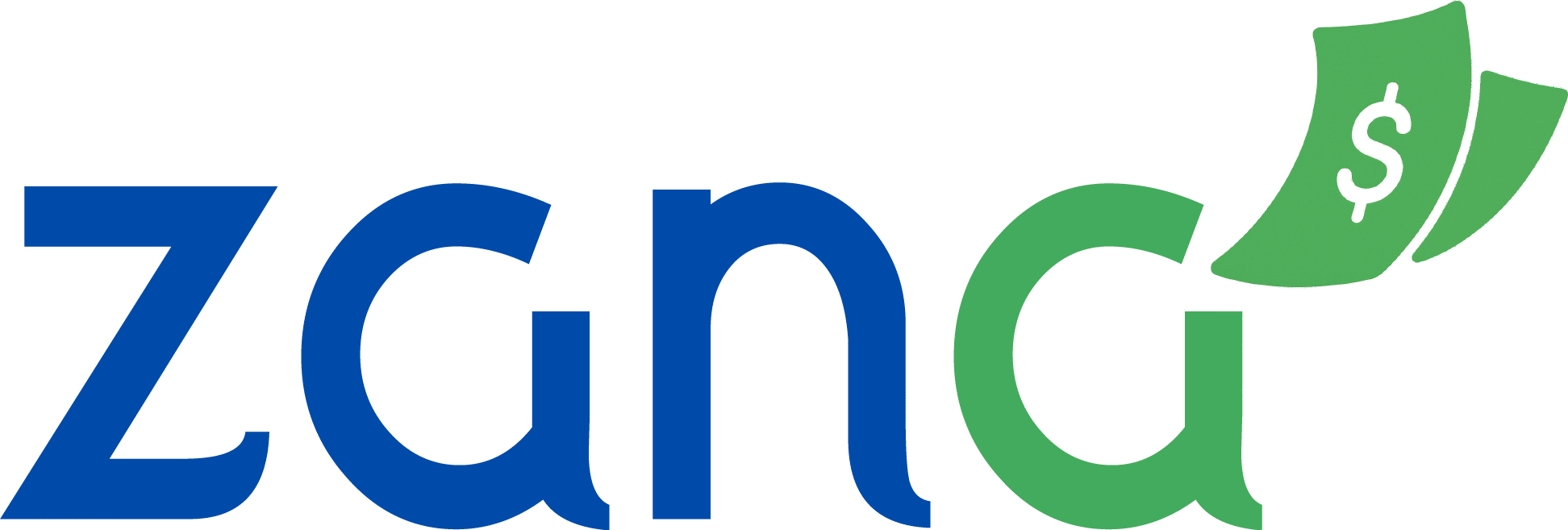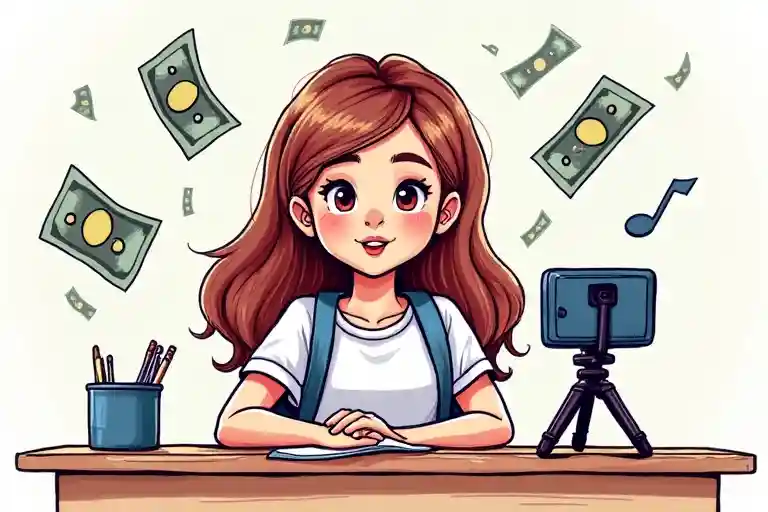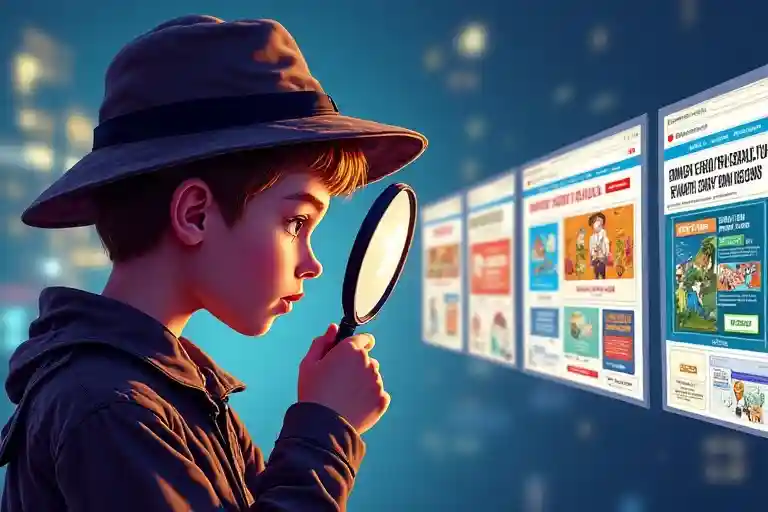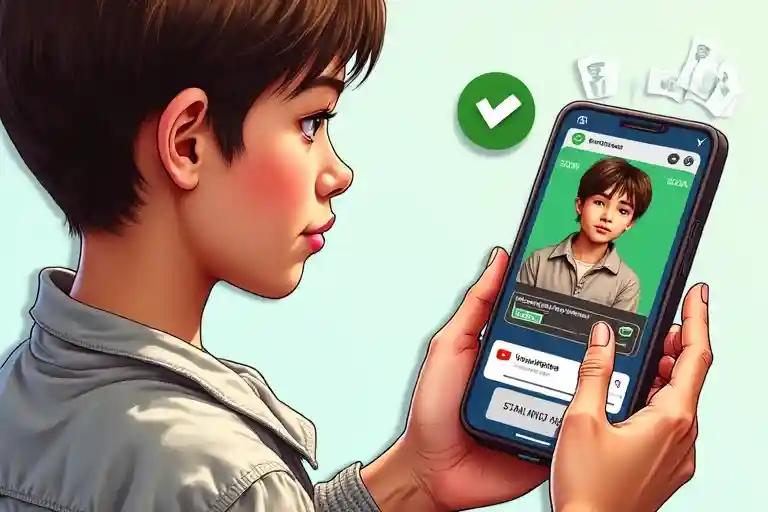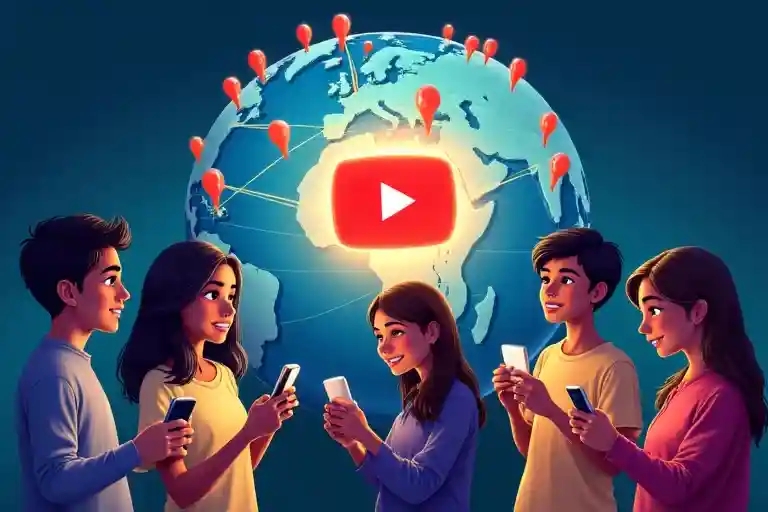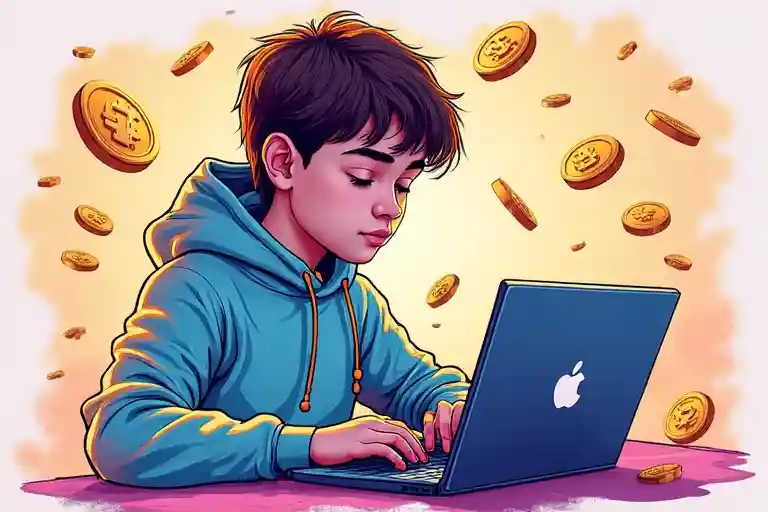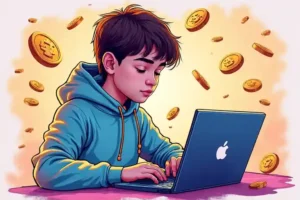Okay, let’s get real for a sec. You download a super fun game, a cool photo editor, or that app everyone’s talking about on TikTok, and it’s… FREE! But then you start wondering, wait a minute… if I didn’t pay for it, how do free apps earn money? Is it magic? A super generous billionaire? (Spoiler: probably not!) This is a HUGE question, and honestly, when I first started digging into it, I was shocked myself! It’s like finding out how a magic trick works – once you know, you see it everywhere. So, if you’ve ever been curious about the moolah behind your favorite no-cost apps, you’re in the RIGHT place. We’re about to dive deep into the surprising, sometimes sneaky, but totally fascinating ways these digital goodies make cash. We’ll cover everything from those ads that pop up mid-game to how your data *might* be part of the picture. And hey, if you’re looking for ways to potentially earn some cash yourself through apps, check out this Which is the best earning app without investment? Teen Guide!
Think about it: developers spend HOURS, days, even years building these apps. They’ve got to pay their bills, right? So, they get creative. It’s not always obvious, but the strategies are pretty clever. We’re talking in-app purchases that give you extra lives or cool skins, premium versions that unlock awesome features, and yes, those ads that sometimes feel like they’re following you around the internet. We’ll break down all these methods, look at some real-world examples (ever bought V-Bucks in Fortnite? That’s one way!), and even discuss how some of the biggest names in the app game, like those running app stores, facilitate this. Understanding how do free apps earn money isn’t just about satisfying your curiosity; it’s also about being a smart digital citizen. Knowing the ‘how’ helps you make better choices about what you download and how you use it. Plus, who knows, maybe it’ll spark an idea for your OWN app someday! Let’s get into the nitty-gritty.
The Lowdown: Different Ways Free Apps Actually Make Bank
Alright, so the big question remains: how do free apps earn money? It’s not just one single trick; it’s more like a whole toolkit of strategies. Developers pick and choose what works best for their app and their users. Imagine a pizza place – some make money selling whole pizzas, others by the slice, some with drinks and sides. Apps are kinda similar! They find different revenue streams. Some are super obvious, like when you’re watching a video ad to get an extra life in your game. That’s a classic! But other methods are more subtle, working behind the scenes. It’s all about finding a balance between making money and keeping users happy enough not to hit that uninstall button. It’s a tricky tightrope walk, for sure!
One of the maximum common approaches is through advertising. This can take many bureaucracy, from banner advertisements at the bottom of your display to complete-display screen video ads that you have to observe. Then there are in-app purchases, or ‘IAPs’ as the cool youngsters (and builders) call them. Think approximately your favorite sport: ever been tempted to buy more cash, a unique character, or a groovy outfit in your avatar? That’s an IAP! Another famous version is ‘freemium,’ in which the primary app is unfastened, however you could pay for a top rate model with extra capabilities or an ad-free enjoy. It’s like getting a unfastened sample at the mall after which finding out if you need to shop for the whole lot. And trust it or no longer, occasionally the app itself isn’t always the product, YOU (or as an alternative, your records, normally anonymized) are. We’ll dive deeper into every of those, so hang tight!
In-App Advertising: The Ad Game
Okay, let’s talk ads. Love ’em or hate ’em, they are a HUGE reason how do free apps earn money. Picture this: you’re *this* close to beating your high score, and BAM! Ad. It can be annoying, for sure, but it’s often the primary way free apps keep the lights on. It’s like TV commercials, but way more targeted. There are a few main types of ads you’ll see. Banner ads are those little strips at the top or bottom of the screen. Interstitial ads are the full-screen ones that pop up between levels or actions. Then there are rewarded videos – “Watch this 30-second ad to get 100 free gems!” – which are pretty popular because you get something in return. Some apps even use native ads, which are designed to look and feel like part of the app’s content, making them less intrusive. It’s all about getting eyeballs on those ads, because advertisers pay the app developers for those views or clicks. For some teens looking to earn, understanding ads is key, perhaps even for finding Daily 100 rupees earning app without investment: Legit Ways! if they explore apps that reward for ad engagement (with caution and parental guidance!).
Freemium Upsell: The “Free Basic, Pay for Pro” Model
Ever used an app that was free, but kept tempting you with “Go Premium!” or “Unlock All Features!”? That, my friends, is the freemium model, and it’s a super common answer to how do free apps earn money. The idea is simple: offer a basic version of the app for free to get a LOT of people using it. Then, offer extra, super cool, or super useful features that users can pay for. Think of apps like Spotify – you can listen to music for free with ads and some limitations, or you can pay for Spotify Premium to get ad-free listening, unlimited skips, and offline downloads. Photo editing apps often do this too; basic filters are free, but the *really* awesome artistic ones? You gotta pay. It’s a clever strategy because it lets you try before you buy. You get to experience the core value of the app, and if you love it enough and want more, you can choose to upgrade. No pressure, just… temptation. This model works well because it doesn’t force anyone to pay, but for users who find real value, the upgrade often feels worth it.
In-App Purchases (IAPs): Microtransactions, Major Money
Alright, let’s talk about those little things you can buy *inside* an app – In-App Purchases, or IAPs. This is a GIANT way how do free apps earn money, especially in gaming. Think approximately games like Roblox or Fortnite. You can play free of charge, but then there are Robux or V-Bucks you may purchase to get cool skins, unique gadgets, or access to unique content material. It’s like, “This hat for my avatar is SO me, I need it!” That’s an IAP. These are regularly called microtransactions because each buy is probably small (a dollar right here, five greenbacks there), but they upload up to BIG cash for developers when tens of millions of gamers are shopping for them. It’s no longer just games both. Dating apps would possibly offer “first rate likes” for a small price, and productiveness apps might sell extra storage or advanced capabilities as IAPs. The key right here is that these purchases are commonly optional and often cosmetic or comfort-based totally, so the free revel in is still good, but the paid one is higher or greater customized. Always do not forget to check along with your parents before making any IAPs – the ones little purchases can upload up wonderful rapid!
How do free apps make money without ads?
So, you’re using an app, it’s totally free, and you’re like, “Wait a sec, I haven’t seen a single ad! What’s the catch?” It’s a great question, and yes, free apps can definitely make bank without bombarding you with commercials. This is where some of the other clever strategies come into play. If you’re wondering how do free apps make money without ads, a big answer is often the freemium model we just talked about, or by selling digital goods through in-app purchases. Some apps also make money through sponsorships or affiliate marketing, where they might promote another company’s product or service. Think of a fitness app partnering with a healthy snack brand. It’s less common for smaller apps but can be a route.
Another significant, and sometimes controversial, way free apps can earn money without directly showing you ads is through data monetization. Now, hold up – this doesn’t always mean they’re selling your name and phone number to the highest bidder (though you should ALWAYS read privacy policies). Often, it involves collecting anonymized and aggregated user data – meaning your personal identity is removed, and your data is mixed with thousands or millions of others. This bulk data about user behavior, preferences, and trends can be valuable to researchers, marketers, or other companies trying to understand consumer habits. For example, an app might track general usage patterns, like which features are most popular or how long people spend on certain screens. This info can then be sold or used to improve their own app or develop new products. It’s a bit like how knowing Which app is good for earning money without investment? Legit Ways! can be valuable info. Transparency is key here, and reputable apps will outline their data practices in their privacy policy. Always take a peek at that!
Data Monetization: The Invisible Income
This one can feel a bit like, “Whoa, what?” when you first hear about it, but data monetization is a real way how do free apps earn money, especially those that don’t rely heavily on ads or IAPs. So, what does it mean? Essentially, some apps collect information about how you use the app, your general preferences (NOT usually your personal DMs or photos, especially with reputable apps – always check permissions and policies!), and sometimes your device information or location (if you grant permission). This data is often anonymized (your name and specific identity are stripped away) and aggregated (mixed with data from tons of other users). Why is this data valuable? Well, market research companies, advertisers, and other businesses pay for these large datasets to understand trends, consumer behavior, and to make their own products or services better. For example, knowing that users in a certain region *really* love a specific game genre can be super useful. It sounds a bit “Big Brother,” but good apps are transparent about this in their privacy policies. It’s one of those things where you trade some general, anonymized data for a free service. The important thing is to be AWARE and check what data an app collects and how it’s used. Creepy uncle vibe? Maybe uninstall. Seems legit and you love the app? Your call, but be informed! For insights into apps that are transparent and perhaps even help you earn, you might explore resources like 18 Best Apps To Make Money: A Quick Guide (2025) – Wise for a broader perspective.
Sponsorships and Affiliate Marketing
Ever seen your favorite YouTuber or TikTokker shout out a product? Apps can do something similar! This is another way how do free apps earn money, especially niche apps. With sponsorships, a company might pay the app to feature their brand or integrate their product in a natural way. Imagine a popular free meditation app getting sponsored by a company that sells calming teas. You might see a little “Sponsored by TeaRelax” message or a special meditation track focused on relaxation with tea. It’s usually pretty clear when it’s a sponsorship. Affiliate marketing is a bit different. The app might recommend other products or services, and if you click a link in the app and buy something, the app gets a small commission. Think of a travel planning app linking to a hotel booking site. If you book through their link, they get a cut. It’s less direct than ads but can be effective if the recommended products are genuinely useful to the app’s users. It’s all about that #synergy, as the business folks say. It’s kind of like how you might look for The Best Earning App for Students: Real Cash, Zero Stress; apps also look for reliable partners.
How do free apps make money on Google Play?
Okay, so you get your apps from the Google Play Store (or the Apple App Store, the principles are similar!), and you’re wondering, “How does Google Play itself fit into how do free apps earn money?” Well, Google Play (and Apple’s App Store) are like massive digital marketplaces. They don’t *directly* pay developers just for having a free app listed. Instead, they act as the platform and facilitator for many of the monetization methods we’ve discussed. For instance, if an app uses in-app purchases (like buying those awesome game coins or unlocking a premium feature), Google Play processes that payment. And for their service, they take a cut, usually around 15-30% of the transaction. So, if you spend $10 on an IAP, the app developer might get $7-$8.50, and Google Play gets the rest. This is a standard industry practice. It covers the cost of hosting the app, managing payments securely, and providing tools for developers.
Google Play also plays a role in the advertising ecosystem. While Google doesn’t directly pay for every ad shown in every app, they provide one of the largest mobile advertising platforms, Google AdMob. Developers can integrate AdMob into their apps to display ads from Google’s vast network of advertisers. The developers then earn money based on ad impressions (how many times ads are shown) or clicks. So, Google Play facilitates these ad revenues by providing the platform and the ad network. It’s a whole ecosystem! Essentially, Google Play (and other app stores) make money when the apps *on their platform* make money through these various methods. They’re like the landlords of the digital mall; they provide the space and infrastructure, and they get a piece of the sales that happen within it. This is crucial for developers who want to reach a wide audience and implement reliable ways to monetize.
How does WhatsApp make money?
This is a classic question because WhatsApp is HUGE, it’s free for most users, and for a long time, it famously had NO ads. So, how does WhatsApp make money (or how *did* it, and how is it evolving)? It’s a bit of a unique story. Initially, WhatsApp charged a tiny $1 annual subscription fee in some countries after the first year of free use. But they eventually dropped that. For a long time, their main focus was on user growth, not direct revenue. Remember, Facebook (now Meta) bought WhatsApp for a WHOPPING $19 billion in 2014! That kind of money buys you a lot of time to figure out a monetization strategy without rushing into ads that might annoy users.
So, what’s the plan now? Meta is increasingly focused on business tools. The primary way WhatsApp is monetizing now, and plans to expand, is through **WhatsApp Business API**. This allows larger businesses to connect with their customers on WhatsApp for things like customer service, notifications, and sales. Think about getting shipping updates from a company directly in WhatsApp, or chatting with customer support. Businesses pay for these services, especially for sending messages at scale or using more advanced features. It’s less about making money from individual users chatting with their friends and more about providing valuable communication tools for businesses. They’re also exploring features like in-app shopping and payments in some regions, allowing users to browse catalogs and buy products directly within WhatsApp chats. It’s a long-term game for them, focusing on integrating WhatsApp into the business world. It’s a different approach than your typical game app, that’s for sure, and shows that not all free apps follow the same playbook.
How do apps make money (The General Picture)?
So, we’ve looked at specific methods, but let’s zoom out. When we ask “how do apps make money?” in general, it boils down to a few core principles. First, an app needs users. LOTS of users if it’s going the free route. User attention is the new gold. Once an app has that attention, it can leverage it. Think of it like a popular TikTokker – the more followers they have, the more brands want to work with them. Same for apps. Whether it’s showing ads, offering cool paid upgrades, or selling digital goodies, it all starts with having an engaged audience. This is why you see so many apps focused on getting downloads and keeping you coming back every day. They need your eyeballs and your time!
The second principle is providing *value*. Even if an app is free, it needs to do something well – entertain you, help you connect, make a task easier, etc. If the free version is terrible or barely usable, no one will stick around long enough to see an ad or consider an upgrade. So, developers are constantly trying to balance giving away enough value for free to attract and keep users, while holding back some premium value that people might be willing to pay for. It’s a delicate dance. And remember, the app stores themselves, like Google Play and Apple’s App Store, are key players. They provide the platform, the payment processing, and access to a global audience, and they take a percentage of many types of revenue generated through their stores. So, it’s a whole ecosystem with different players, all trying to create a sustainable model. If you’re curious about how apps can even help *you* earn, you could explore things like Best 14 Daily Earning Apps Without Money Investment – Pawns.app, keeping safety and legitimacy in mind.
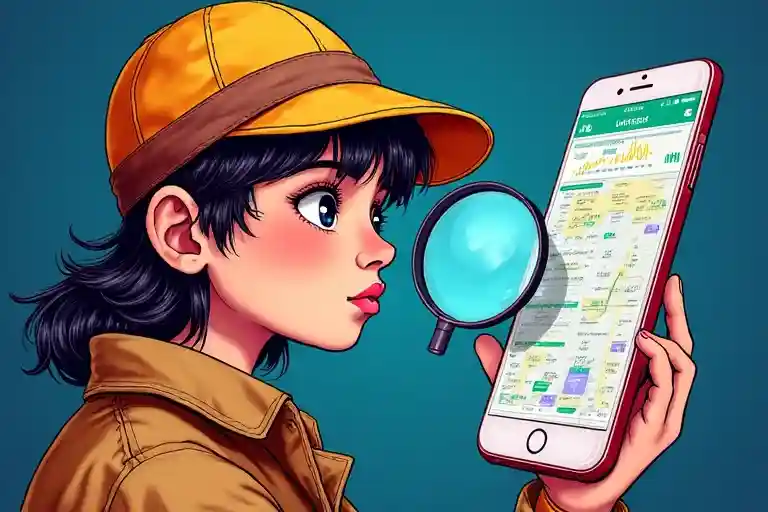
Is My Data Safe? What Free Apps Do With Your Info
Okay, this is a BIG one, especially when we talk about how do free apps earn money. When you hear “data monetization,” it can sound a little scary, right? Like, are they reading my DMs with my crush? (Probably not, but let’s break it down). Reputable apps have privacy policies for a reason. These documents (yeah, the super long, boring ones) spell out what data they collect and how they use it. It’s *super* important to at least skim these, especially for apps that want a lot of permissions (like access to your location, microphone, or contacts).
Generally, when apps talk about using data, they mean anonymized and aggregated data. “Anonymized” means your personal details (name, email, phone number) are removed. “Aggregated” means your data is bundled with data from thousands or millions of other users, so it’s about general trends, not *you* specifically. For example, a game developer might look at aggregated data to see which levels are too hard (lots of people quit there) or which in-app items are most popular. This helps them improve the game. Sometimes, this aggregated, anonymized data is sold to third parties for market research or to help advertisers show more relevant (though still anonymous) ads. The “yikes” factor comes in if apps are shady and collect more data than they need, don’t anonymize it properly, or sell it in ways you didn’t agree to. That’s why checking permissions is key! If a simple calculator app wants access to your contacts and microphone, that’s a red flag bigger than that one TikTok dance everyone’s doing. Always ask: “Does this app *really* need this permission to do its job?” If not, deny it! And consider if the free service is worth the data exchange. Sometimes it is, sometimes it isn’t. Your choice, your data!
Spotting the Catch: Tips for Teens Using Free Apps
Being a teen in the digital age is awesome – you’ve got a universe of apps at your fingertips! But since we know how do free apps earn money, it’s smart to be a savvy user. Here are some tips to keep you safe and in control:
- Read the Reviews (the good, the bad, and the ugly): Before you hit “download,” see what other users are saying. Are there tons of complaints about too many ads, sneaky charges, or privacy concerns? That’s a hint!
- Check App Permissions: When an app asks for permission to access your location, camera, microphone, contacts, etc., think: “Does it REALLY need this?” A photo editing app might need access to your photos, but does it need your contact list? Probably not. You can usually manage permissions in your phone settings. Be a permission boss!
- Understand In-App Purchases: Many free apps will tempt you with IAPs. These can be fun, but they can also add up FAST. Always, always, ALWAYS get your parents’ permission before making any in-app purchases. Set spending limits if possible. Remember, that cool dragon skin isn’t worth getting into trouble over.
- Look for the Privacy Policy: Yeah, it’s long and full of legal jargon, but try to find the section on data collection. See what they say about how they use your info. If you can’t find a privacy policy, that’s a red flag. Transparency is key!
- Beware of “Too Good To Be True” Apps: If an app promises you’ll get rich quick or offers unbelievable rewards for free, be super skeptical. These are often scams designed to get your data or trick you into watching endless ads. If it sounds like a get-rich-quick scheme from a movie, it probably is. There are legit 100 percent real money earning apps without investment, but they require effort and are usually modest.
- Talk to Your Parents/Guardians: If you’re ever unsure about an app, or if something feels off, talk to a trusted adult. They can help you figure out if it’s safe and appropriate. Two heads are better than one, especially when it comes to digital safety.
- Use Strong, Unique Passwords: If an app requires you to create an account, use a strong password that you don’t use for other accounts. This is just good general online safety!
Being aware of how free apps work helps you enjoy them more safely and responsibly. You got this!
What the Internet Says: How Do Free Apps Earn Money? (e.g., Reddit Insights)
If you hop onto forums like Reddit, you’ll see tons of discussions about how do free apps earn money. People share their experiences both as users and sometimes even as developers. A common theme is the ad model – lots of users acknowledge that ads are a necessary evil for free content. You’ll see threads debating which types of ads are most annoying (looking at you, unskippable 30-second videos!) versus those that are more tolerable, like rewarded ads where you get an in-game bonus for watching. There’s also a lot of talk about in-app purchases. Gamers, in particular, discuss the line between fair IAPs (like cosmetic skins) and “pay-to-win” mechanics where spending money gives players a huge advantage. The consensus is usually that as long as the core game is enjoyable without paying, optional purchases are okay. But when an app feels like it’s constantly trying to nickel-and-dime you, users get frustrated fast.
Discussions around data are also frequent. Users are becoming more aware of data privacy, and you’ll find many Redditors advising others to check permissions and read privacy policies. There’s a healthy skepticism about apps that ask for too much access. Some users knowingly accept data collection as a trade-off for a free service, while others actively seek out apps with strong privacy stances or even paid alternatives to avoid data tracking. The conversations often highlight a desire for transparency from developers. Users appreciate it when apps are upfront about how they make money. It’s all about that trust factor. If an app is sneaky, word gets around FAST on the internet. So, what people are saying online often mirrors the methods we’ve discussed: ads, IAPs, freemium, and data are the big players in the free app economy.
Comparing Monetization Methods
To really get a grasp of how do free apps earn money, let’s look at the main methods side-by-side. Each has its pros and cons for both the app developer and for you, the user.
| Monetization Method | How it Works for the App | What it Means for You (the User) | Teen Safety Tip |
|---|---|---|---|
| In-App Advertising | App displays ads (banners, videos, etc.); gets paid by advertisers for views/clicks. | You see ads, sometimes they interrupt gameplay or app use. Can be annoying but keeps the app free. | Be wary of clicking ads that look suspicious or promise unrealistic things. Some ads can lead to scam sites. |
| In-App Purchases (IAPs) | App sells digital goods (game currency, extra features, cosmetics) directly within the app. | You can choose to buy things to enhance your experience; app is free to use without buying. | ALWAYS get parental permission before any IAP. Costs can add up quickly! Disable IAPs if needed. |
| Freemium Model | App offers a free basic version and a paid premium version with more features or no ads. | You can use the basic app for free; upgrade if you want more. No obligation to pay. | Understand what you’re paying for if you upgrade. Make sure the premium features are worth it to *you*. |
| Data Monetization (Anonymized & Aggregated) | App collects non-personal, grouped user data on behavior/trends and may sell these insights. | Your anonymized usage data contributes to larger datasets; app remains free. | Read the privacy policy. Be aware of what data is collected and how it’s used. Limit app permissions. |
| Sponsorships/Affiliate | App partners with brands for promotions or gets a commission for referring users to other services/products. | You might see branded content or recommendations. Can be helpful if relevant. | Understand that these are paid placements. Make your own judgment about the recommended product/service. |
Understanding these differences helps you become a much smarter app user! You can decide which trade-offs you’re comfortable with when you choose to download and use a free app. Knowledge is power, especially in the digital world! And if you are looking for ways apps might help *you* earn, exploring how to earn money online without investment in mobile can be a starting point, always with a focus on safety and legitimacy.
Last updated: May 2025
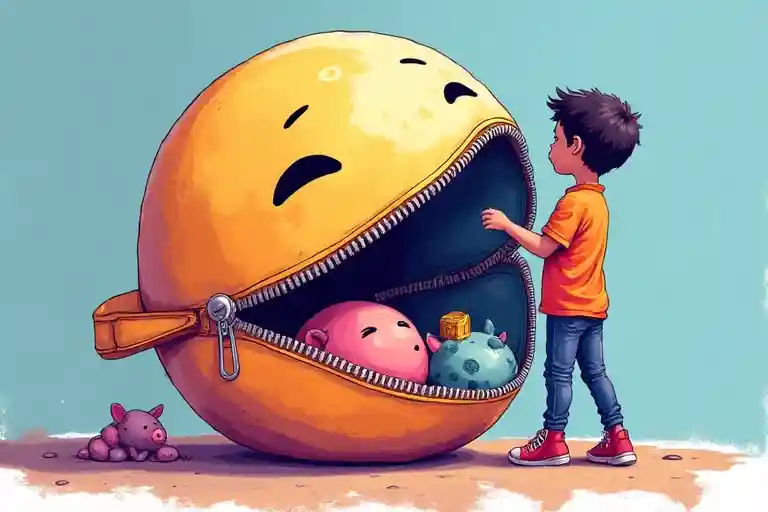
Conclusion
Wow, okay, so we’ve dived pretty deep into the whole mystery of how do free apps earn money! From those ever-present ads and tempting in-app purchases to the freemium model and the less visible world of data monetization, it’s clear there’s a whole lot going on behind the scenes of your favorite free downloads. It’s not magic, just some clever (and sometimes complex) business strategies. The biggest takeaway? Nothing is *truly* free. You’re usually “paying” with your attention (by watching ads), with small purchases, or with your anonymized data. And that’s not always a bad thing! These methods allow awesome developers to create the cool apps we use every day without charging us upfront.
The key for you, as a super-smart teen navigating this digital world, is to be AWARE. Understand the trade-offs. Read reviews, check permissions, and never, ever make in-app purchases without your parents’ okay. Knowing how these apps work empowers you to make informed choices and stay safe online. Who knows, maybe this info will even help you if you decide to create your own app one day! For now, keep exploring, keep learning, and keep being an awesome, informed digital citizen.
So, what do YOU think about how free apps make money? Got any experiences to share? Drop a comment below – we’d love to hear from you! And if you found this useful, why not share it with your friends on TikTok or Instagram? Spread the knowledge!
Stay Updated! The world of apps and how they make money is always changing. New methods pop up, and regulations can shift. Keep checking back with Zana.website for the latest insights and guides for teens!
Frequently Asked Questions
1. Do apps make money if they are free?
Yes, absolutely! Free apps make money through various methods like in-app advertising (showing ads), in-app purchases (selling digital items or features), offering premium subscription versions (freemium model), or by monetizing anonymized user data for market research. So, even if you don’t pay, the app developers are often still earning.
2. How do free apps make money without ads?
Free apps can make money without ads primarily through in-app purchases (selling virtual goods or unlocking features), the freemium model (offering a paid premium version with more benefits), data monetization (selling anonymized, aggregated user data for insights), or sometimes through sponsorships and affiliate marketing partnerships with other businesses.
3. How do you profit from a free app?
As a developer, you profit from a free app by choosing a suitable monetization strategy. This could be integrating ads, offering valuable in-app purchases, creating a compelling premium version (freemium), or collecting and selling anonymized user data. The key is to attract a large user base and then convert that engagement into revenue through one or more of these methods.
4. Do any free apps pay real money?
Yes, some free apps do offer ways to earn real money or rewards, but it’s important to be cautious. These often involve completing tasks like taking surveys, watching videos, playing games to certain levels, or cashback on purchases. Always research these apps carefully for legitimacy and be realistic about earnings – they’re usually supplemental, not a primary income. You might find some interesting options in Best Apps to Make Money in 2025 – Business Insider.
5. How do free apps make money on Google Play?
Free apps on Google Play primarily make money using strategies like in-app advertising (often via Google’s AdMob), in-app purchases for digital goods or features, and offering subscription-based premium versions (freemium). Google Play facilitates these by processing payments for IAPs and subscriptions, taking a percentage as a service fee, and providing ad networks.
